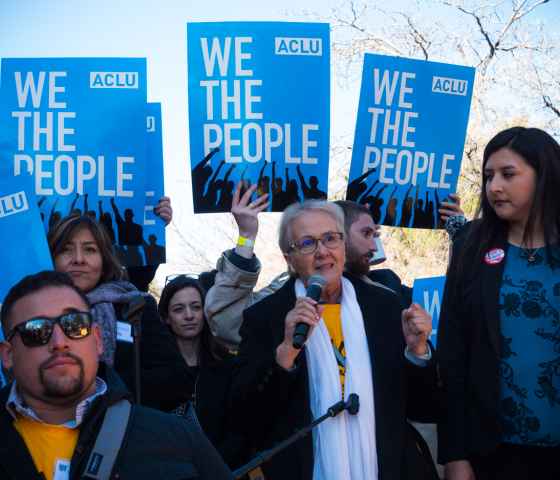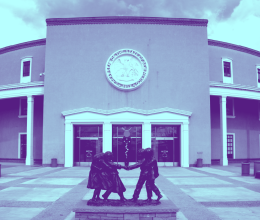By Kimberly Apodaca
Editor’s note: This was presented as a speech at the Roundhouse at End Mass Incarceration Day during the New Mexico Legislative Session.
Hello community, my name is Kimberly Apodaca. I am a native New Mexican and a mother of a son who is currently incarcerated in the Department of Corrections, doing a 10-year sentence.
I stand before you today as a mother, a sister, a relative, a widow, and a friend of many who have experienced our inhumane living conditions behind the walls. Prisons in many regions of our state are overcrowded with prisoners, causing these facilities to have poor sanitary conditions, which can spread disease. Today, in our nation nearly 2 million people are incarcerated, warehoused in cramped spaces that lack fresh air, healthy food, natural light, proper healthcare, and connection to loved ones.
Aside from the state of these unfortunate and dehumanizing environments, our people also lack rehabilitation. Rehabilitation in prisons not only benefits individuals but also society as a whole by fostering safer communities, reducing costs, and promoting social justice. A shift towards rehabilitation can create a more effective and humane criminal justice system.
Further, prisons offer little to no effective rehabilitation, therapeutic treatment, paid employment, or educational opportunities. Normalizing prison environments with evidence-based programming, including cognitive behavioral therapy and personal development, will help incarcerated individuals lead successful lives in the community as family members, employees, and community residents.
Today many ask or give comment, such as: "What do these animals want? They are in prison, not a resort." Or: "They deserve this treatment for what they've done."
I ask you today, if your child — the one you bore in hours of pain and raised with unconditional love, loving them through every mistake, every wrong decision, and yes, even the crime they have committed — are you without spot or blemish and deserving of proper care and entitled to fair treatment, rightfully deserving of attention, fitting to be treated well and last but not least, justified in your humanity in receiving proper care?




